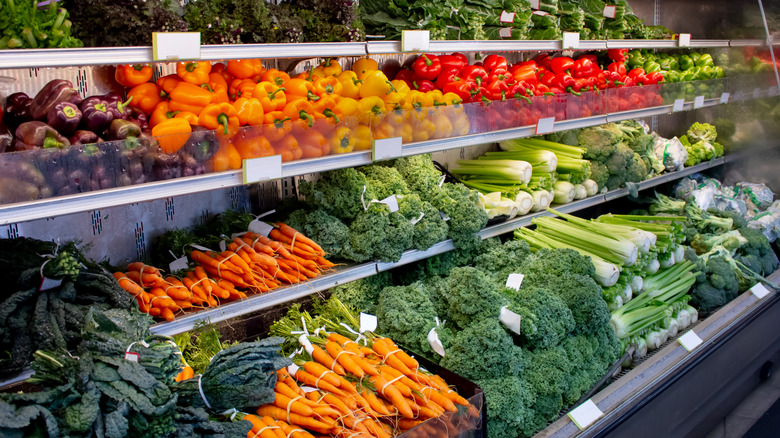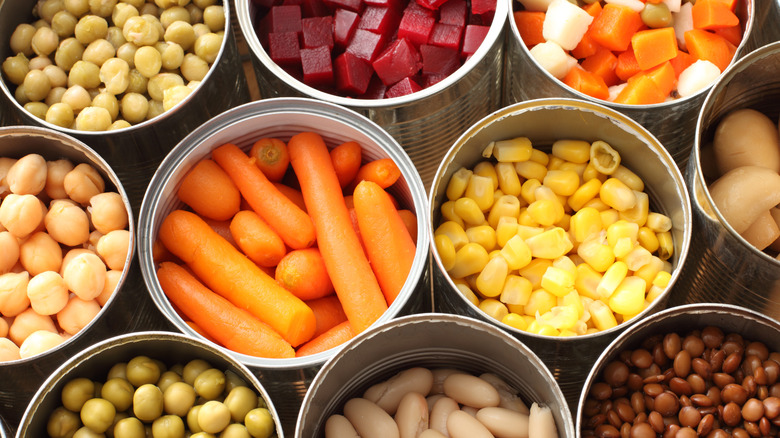The 'Perimeter-Only' Grocery Shopping Rule Leaves Some Important Things Out
Grocery shopping is one of those mundane but necessary tasks we adults have to do, even when it's a trip to a beloved supermarket chain like Aldi or Publix. While some grocery stores have major red flags as soon as you walk in the doors, most err on the side of inviting and pleasant. They also tend to be set up along the same lines, with wholesome foods around the perimeter and the more processed stuff and packaged foods filling in the space between the aisles. Along the way, some folks in the wellness space started touting a "perimeter-only" grocery shopping rule, which sounds okay on paper but actually leaves out more than it lets on.
If you were to only shop the perimeter of your grocery store, yes, you could pick up fresh fruits and vegetables, raw meats and fish, dairy products, and eggs. However, you would be missing out on grains, bread, rice, tortillas, nut butters, oils, canned beans, tinned fish, and more — the fats, carbohydrates, protein, and fiber that these ingredients provide are essential. This shopping method would also completely leave out products that you use for making fresh foods taste good, like spices, tomato paste, dried herbs, soy sauce, and vinegars, as well as a lot of the fun things that make eating a joy. How could you bake your own bread or make a dream birthday cake for a loved one without passing through the middle of the store?
Frozen and canned produce is key
The middle of the store is also full of ingredients that are super important for any home cook who also works full time, has kids, or is otherwise incredibly busy. When adhering to "perimeter-only" grocery shopping, the convenient — and yes, nutritious — canned and frozen fruits and vegetables get skipped. For some reason, these aren't always considered as wholesome as fresh produce, but both types use fruits and veggies that are picked when they are most ripe. Preserving them by canning or freezing locks in all those beneficial vitamins and minerals, which means that most canned and frozen vegetables are as "healthy" as fresh.
The only caveat (depending on your particular dietary needs and preferences) is to be mindful of the sodium content in canned vegetables and frozen veggies that come with sauces and seasonings. However, if you dump out your canned vegetables into a colander and rinse with running water, you can actually decrease the sodium by a significant amount. Or, just opt for low-sodium or no-salt-added products if you like.

